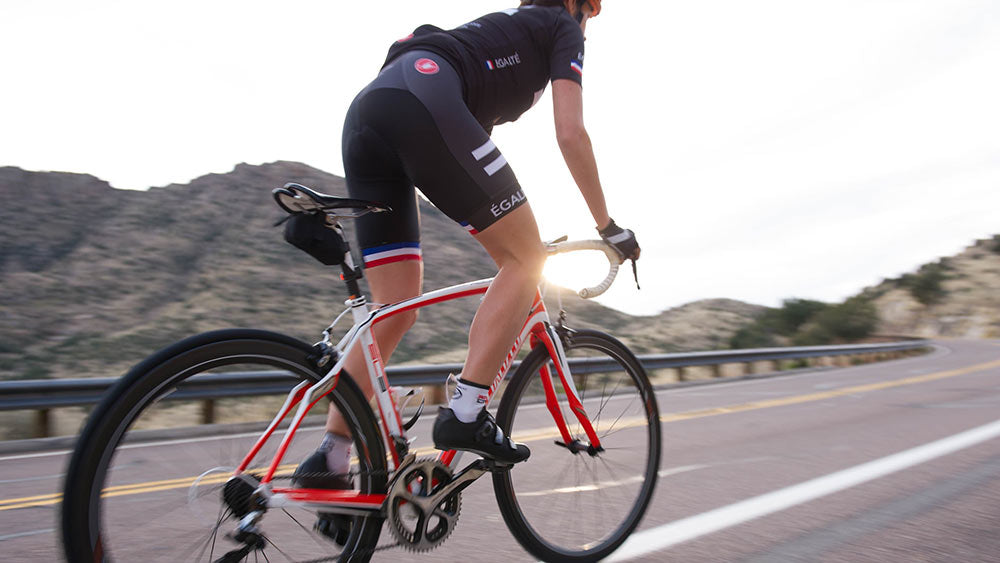I see it every year. Athletes come to me with the mid-season slump. "I am not motivated to do the intervals," or "I can't get my watts to the intervals that you have prescribed," or the big question: "Why am I torturing myself every day with these masochistic workouts that I am paying you to give me!?"
All these issues generally come back to a couple of causes. Number one: They have been training hard since the previous November and need a mental and physical break. Number two: They don't have a goal that motivates them. Let's tackle number one first.
Slump #1: Many Months of Solid Training
If you started solid training in November, which was 8-9 months ago, and in anyone's case that is a long time to be pushing yourself without any sort of significant break.
Solution #1: Take a break. Do something different. Get off the bike.
Late June and Early July is a great time to take two weeks away from the bike. Stop riding and gain some freshness in the body, mind and spirit.
If you can't stand the thought of something so radical as not riding for two weeks straight, then start out with one week completely off the bike and then in the second week ride a mountain bike, or cross bike or even the FAT bike. Do something, anything, different to give you a change of feeling and scenery.
I also recommend two weeks of weight training. This is such a shock to your body because it is so different than what you have been doing that your body immediately goes into what I call "Crisis Adaptation Mode", CAM for short.
This means that your body begins to start a new anabolic (building) phase to adapt to this new stress. This is a trick. After two weeks of weight-lifting your body is full into CAM. Then when you switch back to cycling your body continues this anabolic/building phase and you get stronger.

Slump #2: Lack of a Motivational Goal
I like having "BIG HAIRY" goals.
Solution #2: Get Your Own "BIG HAIRY" Goal
To be a "BIG HAIRY" goal, it needs to meet these three criteria:
-
It needs to involve spending your money, and it can't be just $100.
It needs to be something that you had to save for. If you know you are spending $1500 in order to go achieve this goal, you will have a stronger "Why." (Why am I doing this…?)
-
You have to travel somewhere in order to accomplish this goal.
Fly to Hawaii to climb from Sea to Summit? Go ride in the Colorado Rockies? Come to a PCG camp in Chile? If you have to travel, again, you are more committed.
-
It has to be hard enough, that if you don't train for it, it's going to really suck.
If it's just a 50-mile ride you can do "off-the-couch" anytime, then it's not hard enough. If its 120 miles over three mountain passes, then that could be worthy.
Ask yourself, where's a place you'd like to visit? Is there a possible "BIG HAIRY" ride there that you could do? If so, that might be your next goal to get you outta bed at 6 am and onto the road to do some intervals.
Let us know if we can help you design your next phase in training or help you with your goals!


Hunter Allen is internationally known as one of the top experts in the field of power meter coaching.He co-authored, "Training and Racing with a Power Meter" with Dr. Andrew R. Coggan and it has been translated into eight languages.
He created and teaches the USA Cycling Power Certification Course for USA Cycling Coaches, along with teaching an online power certification course. He has traveled to over 20 countries teaching the principles of power training to more than 3000 coaches and cyclists.As a coach, he has coached athletes to World Championships, National Championships, Tour De France along with helping local beginners and juniors to excel.
He founded Peaks Coaching Group in 1996 to focus on developing the artful science of efficient power training for which Peaks Coaching Group is still known for today. With over 50 coaches, the Peaks Coaching Group continues to lead in coaching cyclists with power meters. You can follow Hunter on Twitter @hunterpeaks or over at his blog.
